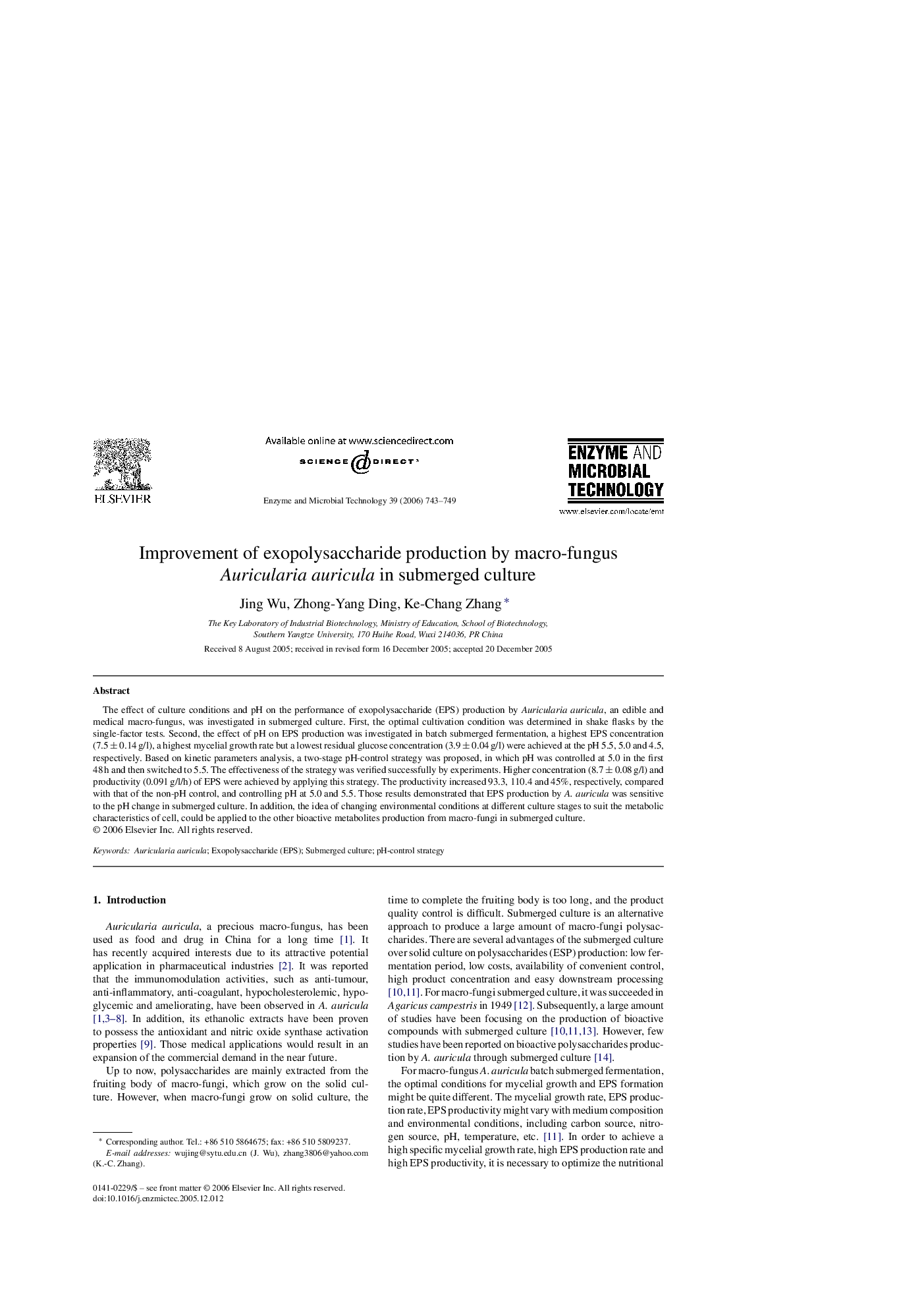| Article ID | Journal | Published Year | Pages | File Type |
|---|---|---|---|---|
| 18514 | Enzyme and Microbial Technology | 2006 | 7 Pages |
The effect of culture conditions and pH on the performance of exopolysaccharide (EPS) production by Auricularia auricula, an edible and medical macro-fungus, was investigated in submerged culture. First, the optimal cultivation condition was determined in shake flasks by the single-factor tests. Second, the effect of pH on EPS production was investigated in batch submerged fermentation, a highest EPS concentration (7.5 ± 0.14 g/l), a highest mycelial growth rate but a lowest residual glucose concentration (3.9 ± 0.04 g/l) were achieved at the pH 5.5, 5.0 and 4.5, respectively. Based on kinetic parameters analysis, a two-stage pH-control strategy was proposed, in which pH was controlled at 5.0 in the first 48 h and then switched to 5.5. The effectiveness of the strategy was verified successfully by experiments. Higher concentration (8.7 ± 0.08 g/l) and productivity (0.091 g/l/h) of EPS were achieved by applying this strategy. The productivity increased 93.3, 110.4 and 45%, respectively, compared with that of the non-pH control, and controlling pH at 5.0 and 5.5. Those results demonstrated that EPS production by A. auricula was sensitive to the pH change in submerged culture. In addition, the idea of changing environmental conditions at different culture stages to suit the metabolic characteristics of cell, could be applied to the other bioactive metabolites production from macro-fungi in submerged culture.
